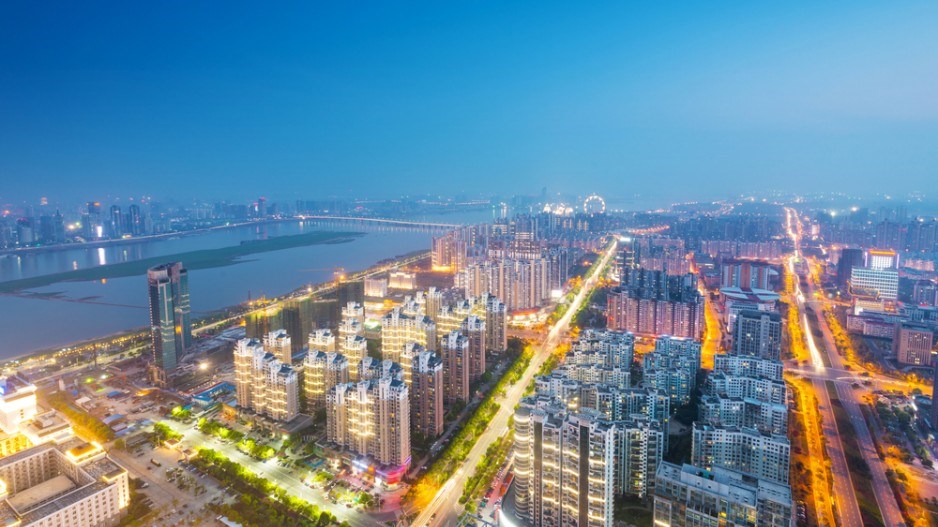What can the experience of the Chinese city of Wuhan - the origin point of COVID-19 which has now been reopened after a lockdown of almost three months - inform Vancouverites about the eventual return to normalcy?
According to China researchers, Wuhan expats in B.C. and other reports, the conclusion is simple: While the reopening is almost universally welcome, it isn’t the fear-free atmosphere it was prior to the outbreak - and the old normal will likely not return until a vaccine becomes widely available.
Chinese authorities officially reopened Wuhan on April 8, allowing the city’s residents to travel in and out of the city for the first time since January. In the surrounding areas in the province of Hubei, travel restrictions have been lifted as early as March 24, and Vancouver relatives of those living in the region report that people have been able to travel to other cities like Shenzhen for work.
“People are returning to work, which is good because they have been trapped in their homes for months,” said Zhou Wen, vice president of the China Hubei Association of Vancouver. “But a lot of people were able to get used to their routines under quarantine; the initial shock of staying home was big, but people slowly acclimatized.”
Zhou concedes, however, that most families suffered lower incomes during quarantine, although the severity is unclear. She added that Wuhan residents continue to live with the shadow of a potential second wave of COVID-19 - although they are doing so now while returning to their daily routines on public streets and spaces.
Now that the situation in Wuhan has relaxed a bit, Zhou also noted that residents are - in turn- showing concerns for the pandemic raging in places like North America and Europe, especially worrying about Chinese students who are abroad studying in places like B.C.
“Very obviously, Wuhan people worry about the second wave,” she said. “But there is now also more of a will to look outside. We have a lot of Chinese students from Wuhan here in Vancouver, and we see their relatives in China trying to send them Chinese medicine to boost their immunity as to not get sick.”
Videos from Wuhan this week showed people crowding shopping areas, taking trains and going about their business - albeit almost all wearing face masks. Still, the atmosphere isn’t the same as pre-COVID-19, said UBC Institute of Asian Research director emeritus Yves Tiberghien, who has been tracking reports coming out of China since the outbreak started.
“We know there’s now travel both ways, and returnees to Wuhan have been welcomed,” Tiberghien said. “So there’s a careful opening of Wuhan and other places, but it’s under the fear of a second wave. It’s not like before the crisis.”
Examples of the restrictions still lingering: Reports indicate that Beijing has restricted the number of Wuhan residents who can travel to the Chinese capital city to 1,000 per day - and additionally requires Wuhan visitors to have been tested negative for COVID-19 within seven days of travelling to Beijing.
International air travel has also been severely curtailed; Chinese air carriers are now only allowed to operate one route to any specific country - and only one weekly flight is allowed on each route.
There are also reports that, while Wuhan is largely open, small pockets of housing complexes and apartments continue to face restrictions - with some remaining on partial lockdown because of potential lingering cases of COVID infections. Some experts, Tiberghien said, estimate there may still be hundreds of cases in the city being monitored.
“So basically, each time they find a potential case, they would lockdown or evacuate the entire building,” Tiberghien said. “But at least the trains have reopened; there are no longer massive roadblocks around the city. So under restrictions, people can start to move - and that’s a big deal.”
The bigger issue now for Wuhan and China, Tiberghien said, is that COVID-19 has gone global. With the United States’ massive consumer market facing an unemployment rate of 20-30% by some projections, Wuhan residents’ bid to return to work and claw back the income they’ve lost will likely hit a major roadblock.
“The economy is falling apart globally,” Tiberghien said. “So while the Chinese economy is picking up, there’s no place to export to because the global market is in trouble. So it’s a very, very mixed picture.”




